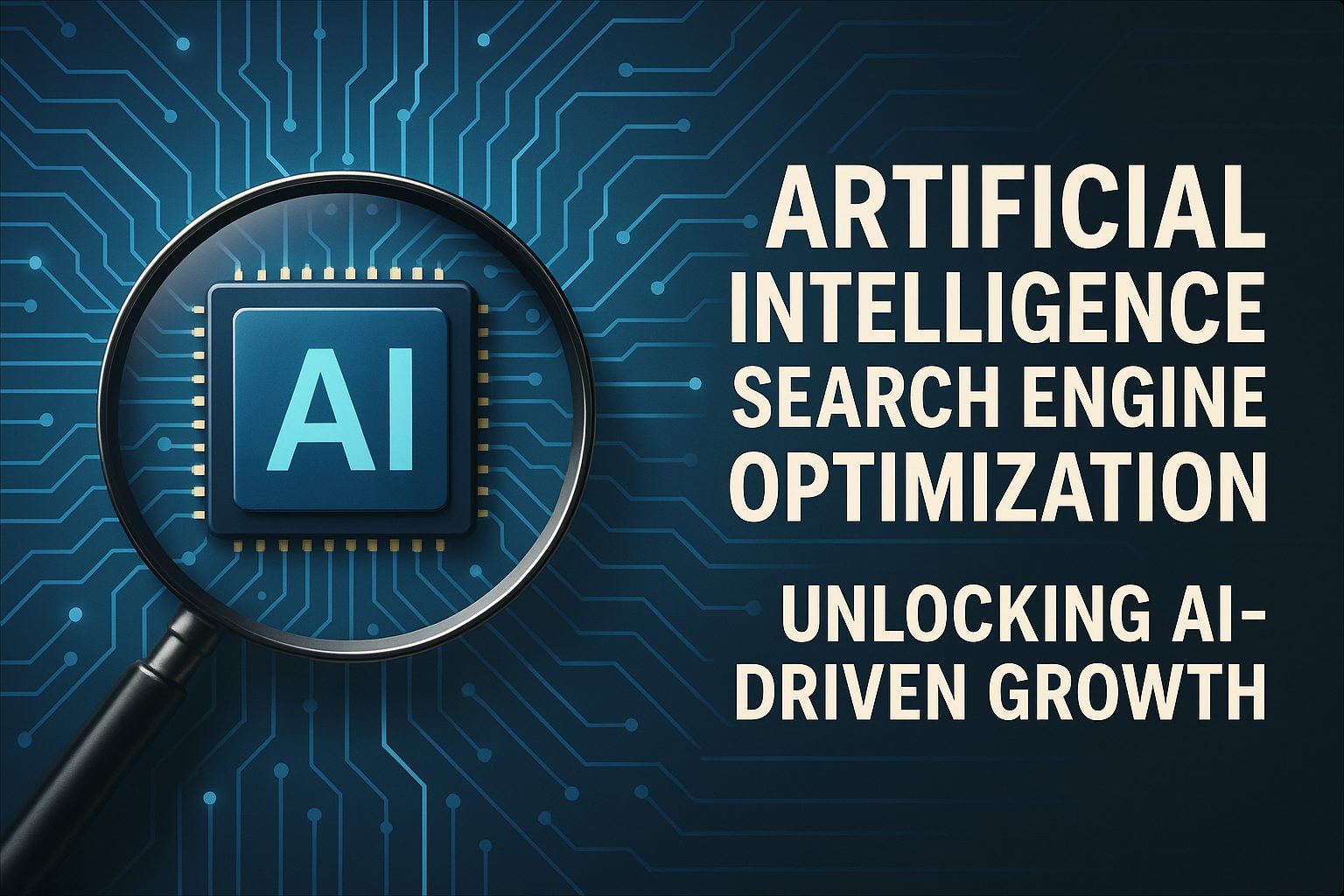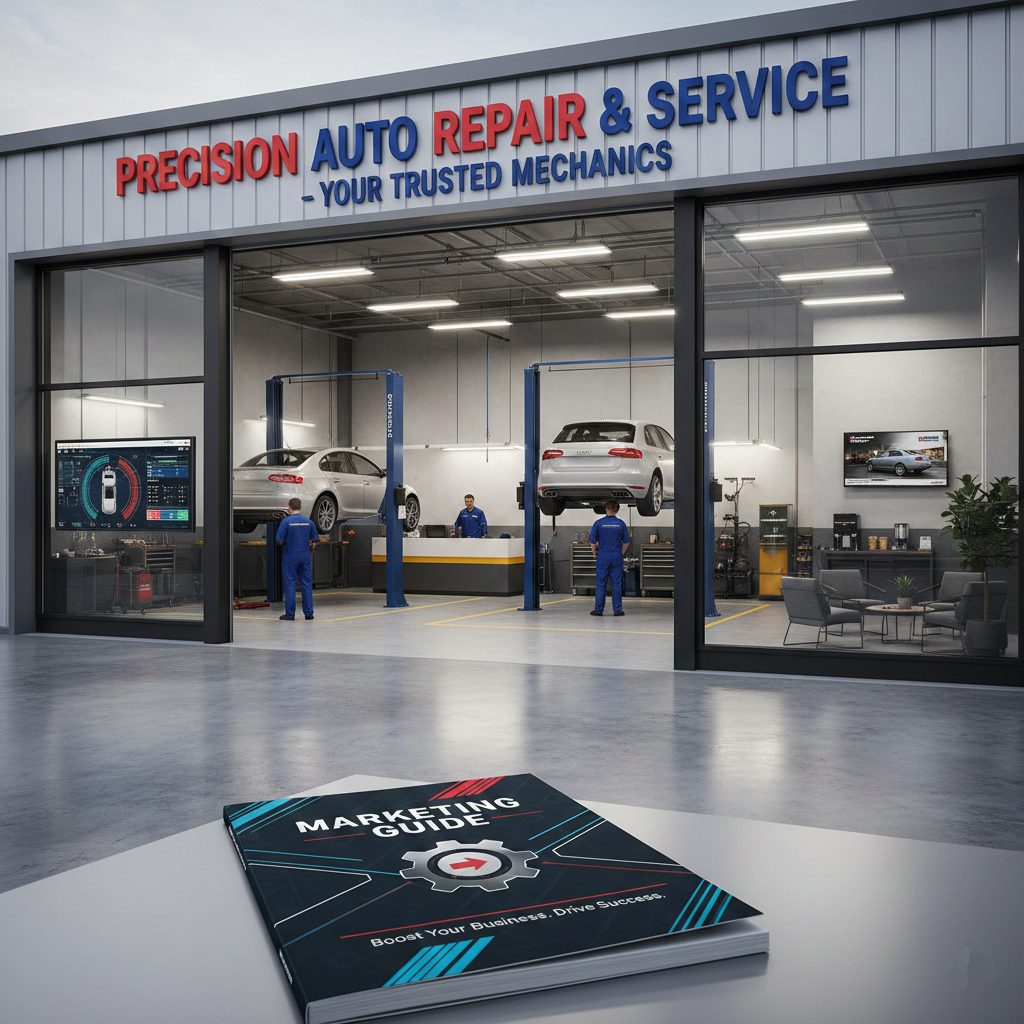Embracing the Future of AI for SEO and What it Means for the Industry


With Google AI Overviews now appearing in over 20% of search queries, tripling in 2025’s first months, the rules for SEO have changed.
Search Engine Optimization no longer means just ranking in link lists; the new goal is to be also included and cited within a single, AI-generated answer.
In this guide, we’ll break down the new disciplines, tactics, and tools your online presence needs when generative AI and shifting user behavior redefine how search engines work.
What Is Generative Engine Optimization?
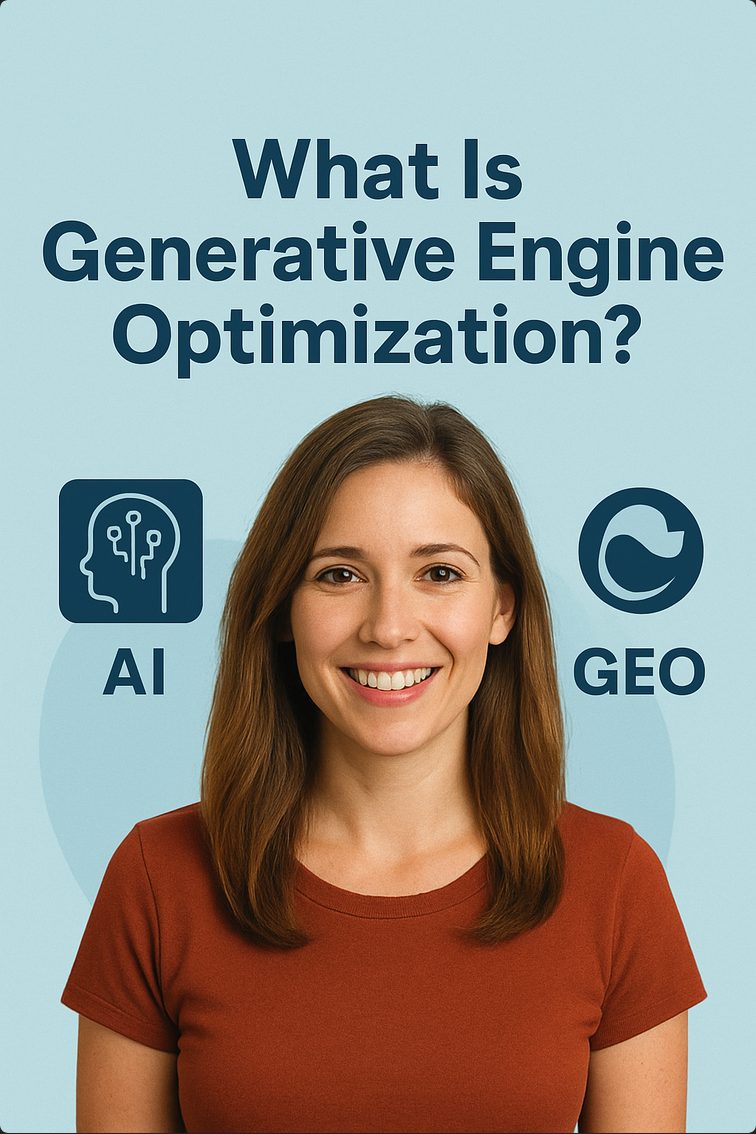
Your audience has changed how they find answers, meaning a lot of the old SEO playbook doesn’t cut it anymore. Generative Engine Optimization (GEO) is the practice of creating and structuring content to be found, understood, and cited by AI search engines, ensuring your brand appears in the responses these platforms provide.

According to Princeton research, this approach can lead to an up to 40% visibility boost in AI-generated responses.

And, with platforms like ChatGPT serving 700 million weekly active users, the opportunity for search visibility is massive.
In addition, a 2024 SparkToro study found that nearly 60% of Google searches result in zero clicks. This means when users don’t click through to websites, being cited becomes the primary way to reach them:

(Image source 1)
The objectives between AI SEO and traditional SEO are fundamentally different:
- GEO’s goal: Direct answers, citations, and brand mentions
- SEO’s goal: Clicks, traffic, and high rankings
Pro Tip:
At Nomadic Advertising, we specialize in AI SEO strategies that position your content for maximum visibility across these platforms. Our new AI Optimization services help businesses develop content strategies for this reference-focused environment.
Adapting to AI Search Trends
Here’s a number that should make you sit up and take notice: AI search visitors convert 4.4x better than traditional organic visitors, according to a recent SEMrush study.

(Image source #2)
The reason behind this impressive performance makes perfect sense once you understand how people are searching now:
- They’re having conversations rather than typing choppy keywords
- They describe their actual problems in detail
- They arrive at your site with crystal-clear intent and are much further along in their decision-making process
And, since AI platforms consolidate authority into just a few cited sources, your SEO strategy must evolve to make you the undisputed source in your field.
SEO vs AEO vs GEO: Breaking Down the New Search Landscape

While the SEO basics you know remain the foundation for driving traffic from traditional search engine rankings, two additional layers have become critical.
Answer Engine Optimization focuses on getting featured in direct answer formats like snippets and voice search, while Generative Search Optimization positions you as a cited source in conversational AI responses.
Here’s when to deploy each approach:
- SEO: For commercial keywords and traditional traffic goals
- AEO: For informational queries and featured snippets
- GEO: For building brand mentions in AI platforms
Let’s look at this in more detail for you:
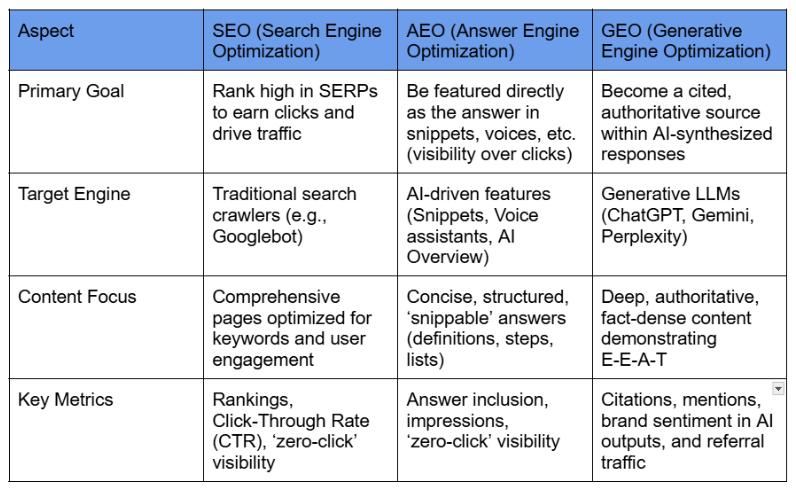
And the urgency becomes clear when you consider that 68% of LLM users are already relying on these platforms for high-intent activities like research, news, and shopping recommendations.

Pro Tip:
Most businesses make the mistake of treating these as separate strategies, but the real power comes from content that serves all three simultaneously, think comprehensive guides that rank traditionally, answer specific questions, and provide quotable expertise.
Understanding AI-Driven Search: How Generative Engines Think
While traditional search matched your keywords to web pages, AI-driven search has flipped the script completely. Instead of hunting for exact matches, AI uses natural language processing to understand the real meaning and user intent behind search queries.
From Keywords to Entities
Here’s where things get interesting: the “keyword” is being replaced by the “entity”, which is a specific brand, product, or concept. Your goal now needs to shift from ranking for a keyword to becoming the definitive authority for an entity in the AI’s understanding.
Building AI Authority

(Image source #3)
AI systems are designed to handle complex, conversational queries rather than simple keyword searches. A query with eight words or more is 7x more likely to get an AI Overview in its results, which explains why you need to focus on:
- Building deep expertise with content clusters
- Mapping out Semantic search relationships between topics
- Anticipating a user’s true user intent
When AI systems can easily identify what you’re an expert on, they’re much more likely to reference your work in these detailed responses.
Google Search Generative Experience: What You Need to Know
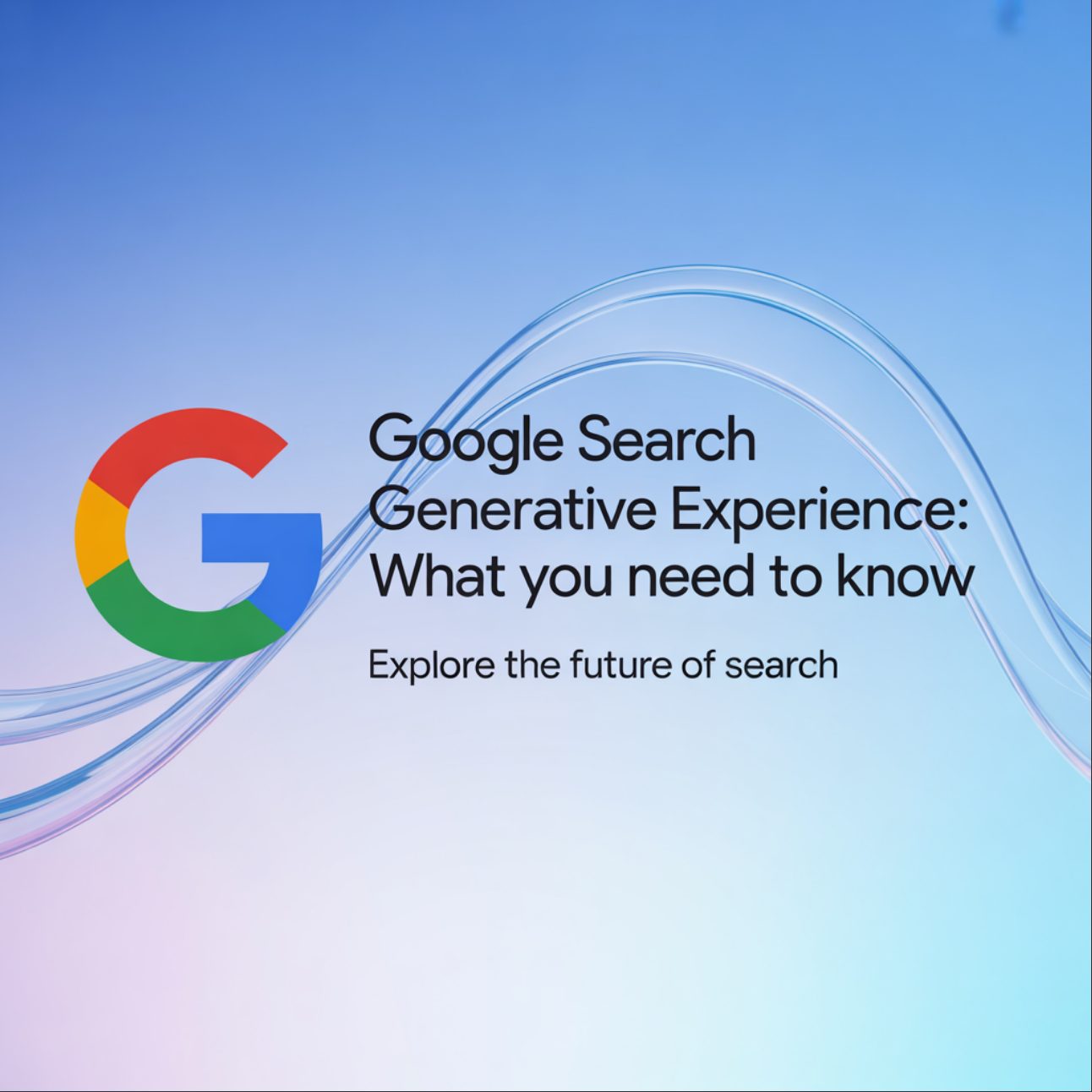
When Google’s AI rolled out AI Overviews alongside the “Web” filter, they revealed their plan for two distinct user types. Google Search now serves “information snackers” who want quick AI Overview answers and “deep divers” who use traditional search engine result pages.
The Timeline:
- May 2024: Official US launch with strategic “Web” filter
- Aug 2024: Google’s AI overviews appeared in Incognito mode internationally
- Oct 2024: Expansion to over 100 countries with multilingual support
- Mar-May 2025: “AI Mode” for complex reasoning launched nationwide in the US
Google’s AI overviews now occupy prime real estate atop Search Engine Results Pages, pushing traditional links below the fold. Instead of fighting for #1 rankings, you’re competing to be cited within synthesized summaries that Google’s AI pulls from multiple sources simultaneously.
How to Optimize for AI Search: Key Tactics That Work
When it comes to content optimization for AI, you need to make your content both machine-readable and credible.

(Image source #3)
Consider this: 40% of sources shown in AI Overviews rank on Google’s second page (spots 11-20), not in the top 10. This means AI selects based on authority, not traditional ranking position.
Focus your on-page optimization efforts on these core areas:
- Structure content with clear headings and lists for AI crawlers
- Implement Structured Data (Schema.org) to make your meaning unambiguous
- Build powerful E-E-A-T signals through expertise demonstration and link building
- Prioritize content freshness with regular updates
Because AI systems prioritize credibility over traditional rankings, your content relevance signals and trust indicators matter more than ever. When you combine clear structure with unimpeachable authority, you can win citations, even from page two.
Understanding AI Search Algorithms: What’s Under the Hood

To understand how AI search algorithms work, picture a system with two parts:
A “brain” that thinks (Large Language Models) and a “library” that provides current facts (the live web). While the brain is a Large Language Model, a form of machine learning AI trained on huge amounts of text, it has one key limitation: its knowledge is static and can be outdated.
This is where Retrieval-Augmented Generation (RAG) solves the problem by connecting the brain to the library of the live web:
- Retrieval: The system first searches the live web for the most relevant, up-to-date facts for a query
- Generation: It then gives those facts to the LLM to generate a fresh, accurate, and sourced answer
This process changes how content gets selected for AI search optimization, as the system prioritizes the most relevant and authoritative information from its retrieval process.
Can You Do Keyword Research with AI?

While AI won’t replace traditional keyword research, it serves as a complement when used correctly. The most practical approach combines AI’s creative strengths with data-backed validation.
AI excels at brainstorming long-tail, conversational queries and grouping them into topic clusters for content creation planning. However, AI has critical limitations: it provides unreliable metrics and cannot grasp your brand’s specific goals.
Your hybrid workflow should follow this process:
- AI for Ideation: Use AI to brainstorm potential topics
- Traditional Tools for Validation: Import into professional platforms, like Ahrefs or Frase, for accurate data
- Human Insight for Strategy: Review validated data to match your market position
Pro Tip:
An AI-only approach isn’t viable. You need to either invest in tools and expertise or hire SEO experts. At Nomadic Advertising, we execute this hybrid keyword research process, handling AI brainstorming, data validation, and strategic analysis.
Writing AI-Friendly Content: Best Practices for Visibility
Writing for an AI-driven world means creating content that’s clear, credible, and easily parsable for both human readers and Large Language Models. Your existing content can be optimized using these proven tactics.

(Image source #3)
Adopt an “Answer-First” structure using the inverted pyramid method. This matters because 7 in 10 searchers only read the first few lines of an AIO. Place your direct answer (40-60 words) at the very top. Incorporate verifiable proof through expert quotes and concrete statistics rather than generic statements.
How else can you format for AI Machine Readability?
- Implement logical heading hierarchy (H1, H2, H3) for AI crawlers
- Use scannable lists, FAQ sections, and tables that AI can easily parse for AI-generated answers
- Provide explicit “Key Takeaways” summaries
AI-Powered SEO Tools: Which Ones Are Worth Using?
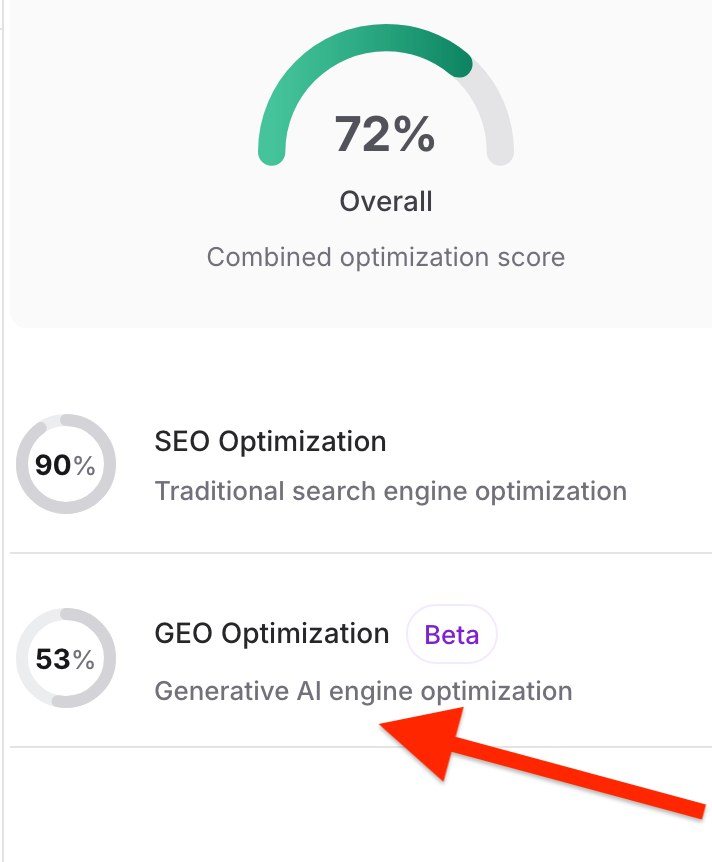
To execute these new strategies, you need a modern toolkit built for AI search realities. Several artificial intelligence tools have emerged to address these specific challenges.
For content optimization and AI readiness, Frase provides a GEO (Generative Engine Optimization) Score that grades content on Authority, Readability, and Structure, useful metrics for understanding how AI systems might evaluate your content.
For market intelligence and competitive analysis, Ahrefs has also added AI-focused features:
- Brand Radar: Tracks brand mentions across AI chatbots like ChatGPT and Perplexity
- AI Content Helper: Identifies topical gaps in your content
- AI Keyword Suggestions: Generates semantically related keyword ideas
Pro Tip:
At Nomadic Advertising, we help you master Frase, Ahrefs, and more to build a comprehensive AI strategy that gets your business the visibility it deserves.
Key Takeaways
- AI citations increasingly matter more than traditional rankings: 40% of AI Overview sources come from page 2
- GEO (Generative Engine Optimization) targets AI-generated answers, not just clicks
- AI-powered search visitors convert 4.4x better than organic traffic
- Authority beats position when search engine algorithms prioritize credible sources for User Experience
- Three-layer strategy combines SEO + AEO + GEO for maximum visibility
And here’s SEO expert, Matt Diggity, with a recent Tweet that shared some more great tips:

(Image source #4)
Looking for AI SEO Services? Book a Consultation Now!
SEO was challenging enough before AI platforms rewrote search entirely. Now you need GEO expertise, citation optimization, and cross-platform visibility tracking.
Nomadic Advertising’s AI Optimization services handle this complexity for you across ChatGPT, Google AI, Perplexity, and more.
Contact us today for a free consultation, and let’s build your foundation in this new AI-first world.
Sources:
1 – https://sparktoro.com/blog/2024-zero-click-search-study-for-every-1000-us-google-searches-only-374-clicks-go-to-the-open-web-in-the-eu-its-360/
2 – https://www.semrush.com/blog/ai-search-seo-traffic-study/
3 – https://www.wordstream.com/blog/google-ai-overviews-statistics
4 – https://x.com/mattdiggityseo/status/1957951345237061667

